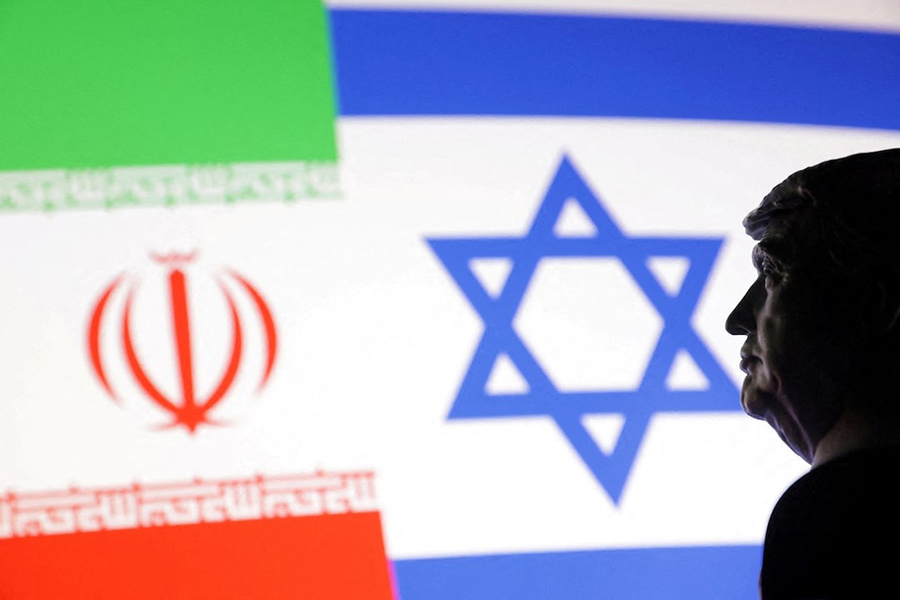

US President Donald Trump announced on Monday a complete ceasefire between Israel and Iran, potentially ending the 12-day war that saw millions flee Tehran and prompted fears of further escalation in the war-torn region.
But there was no confirmation from Israel and the Israeli military said two volleys of missiles were launched from Iran towards Israel in the early hours of Tuesday.
Witnesses later heard explosions near Tel Aviv and Beersheba in central Israel. Israel media said a building had been struck and three people were killed in the missile strike on Beersheba.
Abbas Araqchi said early on Tuesday that if Israel stopped its "illegal aggression" against the Iranian people no later than 4:00 am Tehran time (0030 GMT) on Tuesday, Iran had no intention of continuing its response afterwards, according to a Reuters report.
There have been no reported Israeli attacks on Iran since that time.
"The final decision on the cessation of our military operations will be made later," Araqchi added in a post on X.
"On the assumption that everything works as it should, which it will, I would like to congratulate both Countries, Israel and Iran, on having the Stamina, Courage, and Intelligence to end, what should be called, 'THE 12 DAY WAR'," Trump wrote on his Truth Social site.
Israel, joined by the United States on the weekend, has carried out attacks on Iran's nuclear facilities, after alleging Tehran was getting close to obtaining a nuclear weapon.
While an Iranian official earlier confirmed that Tehran had agreed to a ceasefire, the country's foreign minister said there would be no cessation of hostilities unless Israel stopped its attacks.
A senior White House official said Trump had brokered the deal in a call with Israeli Prime Minister Benjamin Netanyahu and Israel had agreed so long as Iran did not launch further attacks.
Trump appeared to suggest that Israel and Iran would have some time to complete any missions that are underway, at which point the ceasefire would begin in a staged process.
Iran denies ever having a nuclear weapons program but Supreme Leader Ali Khamenei has said that if it wanted to, world leaders "wouldn't be able to stop us".
Israel, which is not a party to the international Non-Proliferation Treaty, is the only country in the Middle East believed to have nuclear weapons. Israel does not deny or confirm that.
Qatar's Prime Minister Sheikh Mohammed bin Abdulrahman Al Thani secured Tehran's agreement during a call with Iranian officials, an official briefed on the negotiations told Reuters on Tuesday.
US Vice President JD Vance, Secretary of State Marco Rubio and US special envoy Steve Witkoff were in direct and indirect contact with the Iranians, a White House official said.
Neither Iran’s UN mission nor the Israeli embassy in Washington responded to separate requests for comment from Reuters.
Hours earlier, three Israeli officials had signalled Israel was looking to wrap up its campaign in Iran soon and had passed the message on to the United States.
Netanyahu had told government ministers whose discussions ended early on Tuesday not to speak publicly, Israel's Channel 12 television reported.


 For all latest news, follow The Financial Express Google News channel.
For all latest news, follow The Financial Express Google News channel.